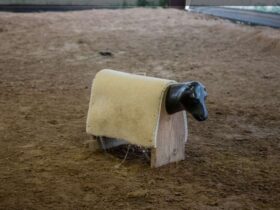Table of Contents
In today’s hastily evolving world, the call for sustainable practices resonates louder than ever before. As we grapple with environmental challenges, industries worldwide are being encouraged to include eco-friendly manufacturing strategies. One such enterprise, custom injection molding, has risen to the occasion by adopting sustainable practices that now not only lessen environmental effects but additionally improve performance and cost-effectiveness. In this article, we can explore the modern ways in which custom injection molding is championing sustainability, from fabric choice to waste reduction and power conservation.
Eco-Friendly Practices in Custom Injection Molding
1. Energy Efficiency
Energy consumption is a first-rate issue in production tactics. Sustainable custom injection molding seeks to mitigate this by optimizing power efficiency. Many centers are making investments in energy-efficient equipment, incorporating brand new technologies like servo motors and variable-pace pumps. These improvements lessen electricity intake and, in the end, greenhouse gas emissions. Additionally, agencies are adopting practices like heat healing structures to harness and reuse warmth generated during manufacturing, further reducing energy waste.
Another promising trend is the integration of renewable energy sources into production centers. Solar panels, windmills, and even biomass power mills are being used to power injection molding machines. By transitioning to easy strength sources, it not only reduces its carbon footprint but additionally ensures strong electricity delivery, lowering its vulnerability to price fluctuations in fossil fuels.
1. Sustainable Materials
A pivotal issue in sustainable custom injection molding is the careful choice of materials. Traditional plastic production is notorious for its reliance on petroleum-primarily based plastics, which contribute appreciably to pollutants and useful resource depletion. However, cutting-edge custom plastic resins for injection molding organizations are more and more turning to biodegradable and recycled substances. These substances not only reduce the carbon footprint but also decrease dependence on finite assets.
Bioplastics, derived from renewable assets like corn starch or sugarcane, have gained a reputation as a sustainable opportunity. They aren’t the most biodegradable, but they also emit fewer greenhouse gases at some point in manufacturing. Moreover, recycled plastics, sourced from publish-patron or publish-business waste, reduce the need for virgin plastic production. By adopting these green materials, custom injection molding no longer only reduces environmental impact but additionally offers an aggressive aspect in an increasingly aware marketplace.
3. Waste Reduction
Waste reduction is a cornerstone of sustainable custom injection molding. The technique generates waste in the form of excess fabric, defective products, and packaging. Companies are adopting numerous strategies to decrease waste and promote recycling.
One key approach is the implementation of lean production principles. By streamlining production methods and optimizing cloth usage, custom injection molding centers decrease waste generation. Additionally, many agencies spend money on recycling packages for scrap substances, making sure that they may be reprocessed into new products instead of ending up in landfills. Some even take it a step further by using closed-loop structures, in which put-up-client plastics are accrued, recycled, and reused within the production process, creating a round economic system model.
4. Eco-friendly packaging
Sustainable injection molding extends past the manufacturing system itself to consist of eco-friendly packaging solutions. As consumers turn out to be more environmentally aware, the demand for sustainable packaging is on the rise. Custom injection molding plays a critical role in meeting this demand by producing recyclable and biodegradable packaging materials.
Packaging solutions crafted from bioplastics and recycled substances not only reduce the carbon footprint but also appeal to eco-aware consumers. Custom injection molding allows for difficult and customizable designs, permitting companies to create appealing, environmentally friendly packaging that sticks out in the marketplace. Furthermore, innovations like water-based inks and green adhesives are being employed to make certain that the complete packaging technique aligns with sustainable practices.
5. Lean manufacturing practices
Lean production ideas are fundamental to sustainable custom injection molding. By putting off inefficiencies and minimizing waste, organizations can lessen their environmental impact while additionally enhancing profitability. Lean practices involve continuous method development, which no longer only reduces resource intake but additionally enhances product quality and production performance.
One of the key tools in lean production is the idea of just-in-time (JIT) manufacturing. By producing only what is wanted while it’s still needed, JIT minimizes extra inventory, decreasing waste and storage prices. Additionally, Total Quality Management (TQM) concepts are carried out to make certain that products meet or exceed customer expectations, decreasing the likelihood of faulty or wasted products.
6. Responsible disposal and recycling
The end of a product’s lifecycle is an important aspect of sustainability efforts. Custom injection molding organizations are increasingly taking responsibility for the disposal of their products and making sure that they can be recycled or disposed of in an environmentally friendly way. This consists of designing products with recyclability in mind and presenting facts to clients on how to properly recycle or dispose of the items.
In some instances, groups provide take-returned packages wherein customers can return used merchandise for recycling or responsible disposal. This not only reduces waste but also fosters an experience of environmental obligation amongst purchasers.
Also Read: Smart Window Technology and Energy Efficiency
Conclusion
Sustainable custom injection molding is a testament to the enterprise’s dedication to eco-friendly practices. From choosing sustainable materials to lowering waste, optimizing strength intake, and embracing lean production standards, custom injection molding groups are leading the charge toward a greener future. By aligning environmental responsibility with economic viability, those companies are setting an advantageous example for industries around the world. As purchasers increasingly prioritize sustainability, custom injection molding’s commitment to green practices will not only benefit the environment but also ensure a wealthy and resilient destiny for the industry.





